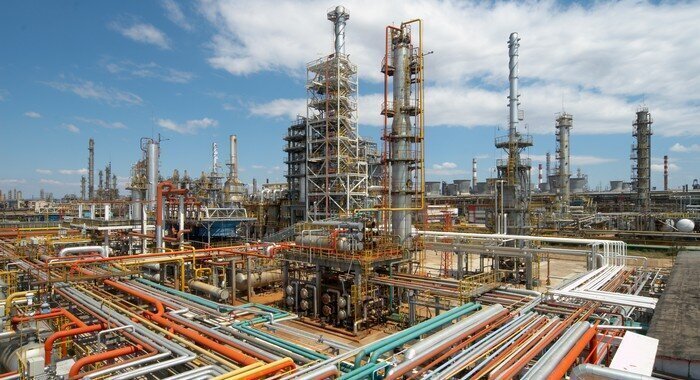NIORDC to boost refining capacity by 180,000 bpd, launch 3 fuel quality projects

TEHRAN – Iran plans to raise its refining capacity by 180,000 barrels per day (bpd) by the end of the current Iranian year in March 2026 and bring three major fuel quality projects online, the head of the National Iranian Oil Refining and Distribution Company (NIORDC) said.
Mohammad Sadegh Azimifar told Shana that the projects include diesel desulfurization at Shiraz refinery to produce Euro-5 fuel, a kerosene treatment unit at Isfahan refinery, and a catalytic reforming unit at Tehran refinery to upgrade gasoline quality.
He said the Isfahan project would come online this week, while Tehran’s CCR unit is expected to be completed by year-end, raising the refinery’s gasoline output by 20 percent.
Azimifar said NIORDC, through its 10 refineries, processes 2.4 million bpd of crude oil and condensates into refined products, which are distributed via 15,000 km of pipelines, 16,000 road tankers, and 87 storage depots across the country.
He noted that Iran increased its power plant diesel reserves by 1.5 billion liters over the past year, compared with shortages that caused power cuts last winter. Gasoline stockpiles were also strengthened, preventing disruptions even during a 12-day surge in demand when daily consumption hit 200 million cubic meters.
The NIORDC chief blamed low efficiency in consumption for Iran’s energy imbalance, citing that 53 percent of the country’s transport fleet is obsolete, consuming two to three times the global average. Inefficient power plants and fuel smuggling driven by price differences with neighboring countries have added pressure on production, he said.
To manage demand, Azimifar said the government is working on fuel-saving certificates, electrifying 20,000 old motorcycles, and replacing aging vehicles in coordination with the transport ministry. He noted that in the first five months of this year, industrial diesel consumption fell 5 percent due partly to artificial intelligence-based monitoring.
The official said two new refineries — Adish-e Jonoubi with 60,000 bpd capacity and Mehr-e Khalij Fars with 120,000 bpd — will start operations by year-end, lifting Iran’s refining capacity by 180,000 bpd.
He added that two new oil and product pipelines, inaugurated during Government Week by President Masoud Pezeshkian, span 800 km and cost €730 million. The projects are expected to cut reliance on 1,600 road tankers, save 60 trillion rials ($120 million) in transport costs, and deliver an extra 100,000 bpd of feedstock to northern refineries.
Most of the work was carried out with 95 percent domestic expertise and locally made equipment, Azimifar said, adding that pipeline connections such as Goreh–Jask and supply links to six power plants were also advanced in the government’s first year.
EF/
Leave a Comment